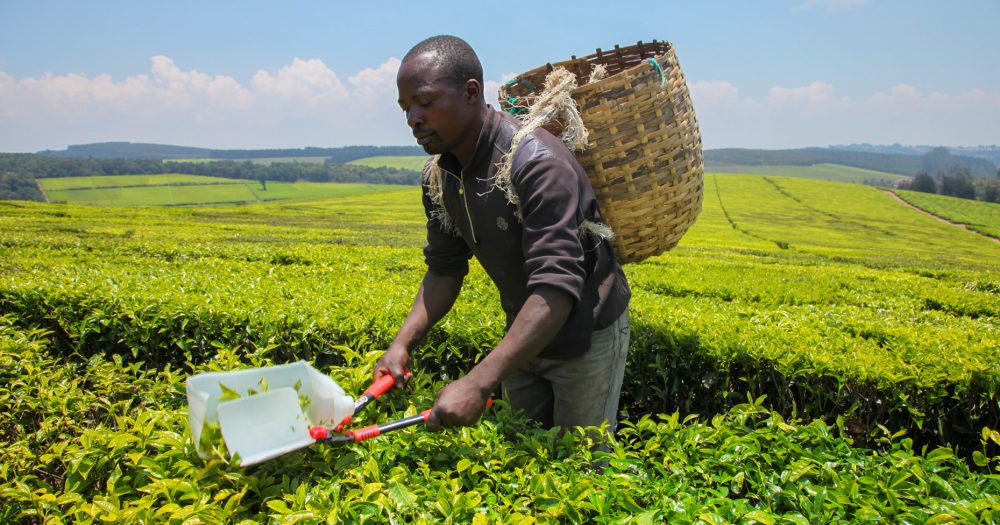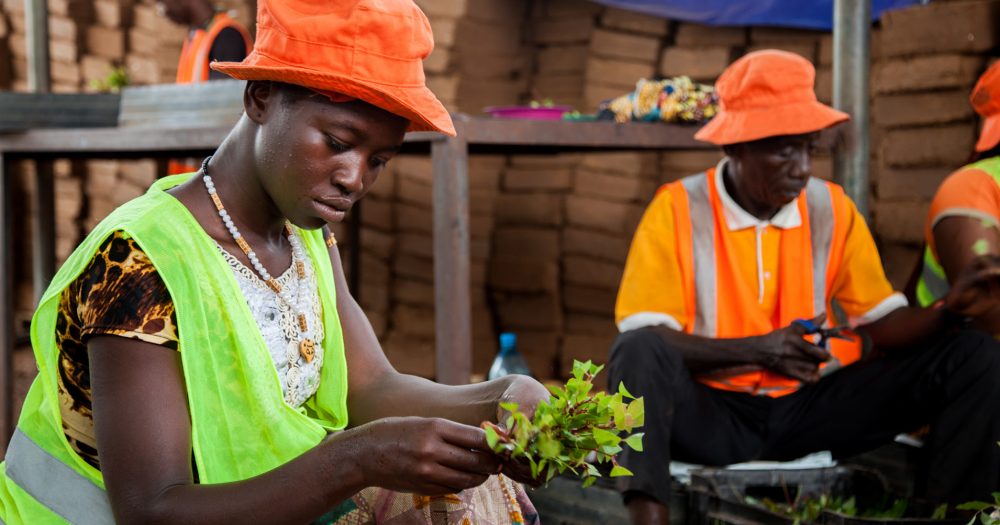Our investment
Description of the investment.
Description of the investment.
We initially committed ZAR 240 million to H1 Capital in 2021 to allow the company to scale and add up to 2.4 gigawatts gross capacity of new renewable projects in South Africa.
We made a follow on commitment of a further ZAR 467.5 million in 2022. This is mezzanine financing to fund H1 Capital's share of equity requirements of three solar plus battery projects in Kenhardt, South Africa that the company is developing along with Scatec, a leading renewable energy solutions provider.
86 per cent of South Africa’s energy generation comes from fossil fuel; coal is the primary baseload technology (74 per cent) followed by gas (6 per cent) and diesel (6 per cent). As a result, the power sector contributes more than half of the country’s greenhouse gas emissions. Our investment helps contribute to the decarbonisation of a highly emitting power sector and assist in meeting power shortages in the country.
Impact information
Applies to investments made from 2019 onwards. The tabs in this section define what we expect to achieve through the investment, assessing the potential impact of the investment against six dimensions of impact. You can find more details on our methodology of assessing impact here.
Applies to investments made from 2019 onwards. The tabs in this section define what we expect to achieve through the investment, assessing the potential impact of the investment against six dimensions of impact. You can find more details on our methodology of assessing impact here.
What?
| Impact |
|---|
|
|
|
How?
| Primary | Secondary |
|---|---|
|
|
Who?
| Stakeholder | Geography | Characteristics |
|---|---|---|
| Planet |
Global |
N/A |
| Employees |
South Africa |
How much?
| Scale | Depth/Duration |
|---|---|
|
Expected to contribute to the avoidance of 5.7 million tons of carbon dioxide annually. |
The projects are expected to support over 8,000 jobs and livelihoods. We expect the impact to be deepest for employees working in electricity dependent sectors which suffer from blackouts due to poor reliability. |
Contribution/additionality
| Contribution/additionality |
|---|
|
Grid score
| Grid Score
To help us direct our investments, we previously used a tool called the Development Impact Grid. It scored investments out of four, based on two factors: the difficulty of investing in a country and the propensity of the sector to generate employment. This tool was used for investments until the end of 2021. Since 2022 it has been replaced by the Impact Score. |
|---|
2.0 |
Risk
Alignment Risk
Execution Risk
|
Environmental and social information
-
Environmental and social summary
A high-level description of the environmental and social aspects of the investment. This may include a summary of key environmental and social risks identified during environmental and social due diligence (ESDD); key elements of an environmental and social action plan (ESAP); or ways in which we plan to support the investee improve environmental and social standards, such as through their environmental and social management system (ESMS); as well as any other priority areas agreed with the investee.
-
Environmental and social risk
A risk category rating, which indicates the level of environmental and social risk associated with an investment. For an explanation of the categorisations used, see here. We consistently provide an environmental and social risk category for all investments screened from 2023 onwards.
Environmental and social risk
Medium-High
Reporting and Complaints Mechanism
The Reporting and Complaints Mechanism allows anyone outside BII to report alleged breaches of the business integrity or environmental and social provisions of BII’s Policy on Responsible Investing. This includes breaches made by BII, a BII investee, or a portfolio company of a fund in which BII has invested. The Reporting and Complaints Mechanism Rules are available here. Reports and complaints can be submitted by email to reportsandcomplaints@bii.co.uk or by mail. See more details on our Reporting and Complaints Mechanism here.
For any other general enquiries contact us at enquiries@bii.co.uk
-
Key facts
- First published
:
When the investment was first published on the website database.
- March 2024
- Last updated
:
When the last quarterly update of the website database occurred.
- June 2024
- Project number
:
An identifier number shared by investments in the same project.
- D5130
- Status
:
The current status of the investment (green flag for active and red flag for exited).
- Active
- Region
:
The geographical region where the country is located. We currently invest in Africa, South Asia, South East Asia and the Caribbean. In 2023, BII’s investment mandate was extended allowing it to invest in regional funds linked to Ukraine, with the majority of activity expected to begin post-war. Investments outside these regions were made prior to 2012 under previous investment mandates.
- Southern Africa
- Sector
:
We prioritise those sectors that facilitate development and need our capital the most. Our priority sectors contribute towards many of the Sustainable Development Goals. They range from investing in the power infrastructure that will provide people with better access to electricity, to investing in financial institutions that direct capital to the individuals and businesses that need it the most.
- Infrastructure
- Investment type :
- Debt
- Start date :
- October 2023
- Amount :
- $6.61m
- Currency of investment :
- ZAR
- Domicile
:
The company or investment fund’s place of incorporation.
- South Africa
We provide capital in the following ways: directly – through direct equity, direct debt, guarantees and other non-intermediated financial instruments; and indirectly – principally through investment funds.
For direct investments and fund investments, this is the date BII committed capital to the investments. This is typically the date on which legal agreements are signed by all parties.
For the portfolio companies of our fund investments, this is the date (either the month or the quarter) on which the fund committed capital to the portfolio company.
For direct equity investments, this is the date at which British International Investment exited the investment.
For debt investments, this is the date at which the final debt repayment was made.
For funds, this is the date at which the fund was terminated.
For underlying fund investments, this is the date at which the fund manager exited the investment.
The total amount committed, per financial instrument, per investment, on the date BII becomes subject to a binding legal obligation to provide funding or assume a contingent liability. This information is provided in US dollars.
For direct investments, this is the amount that BII has committed to the business or project. For fund investments, this is the amount BII has committed to the fund.
The currency in which the investment was made.
- Climate finance
:
Indicates whether the investment is climate finance qualified or partially climate finance qualified and the type of climate finance (adaptation, mitigation or both). We define climate finance using the multilateral development bank (MDB) and the International Development Finance Club (IDFC) Common Principles climate finance methodology. See Common Principles for Climate Mitigation Finance Tracking and Common Principles for Climate Change Adaptation Finance Tracking. We provide the climate finance qualification and type for commitments from 2020 onwards, which is when we launched our Climate Change Strategy.
- Fully qualified
- Climate finance type:
- Mitigation
- 2X Gender Finance
:
Indicates whether the investment is ‘2X qualified’ using the 2X Challenge criteria. You can find out more here. It only applies to investments made from 2018 onwards, when the 2X Challenge was first launched.
- Fully qualified
- First published
Related investments made by BII into this company:
| Investment name | Commitment | Region | Sector | Start date | Status |
|---|---|---|---|---|---|
| Investment 03 | $6.61m | Southern Africa | Infrastructure | October 2023 | Active |
| Investment 03 | $6.61m | Southern AfricaSouthern Africa | Infrastructure | October 2023 | Active |


